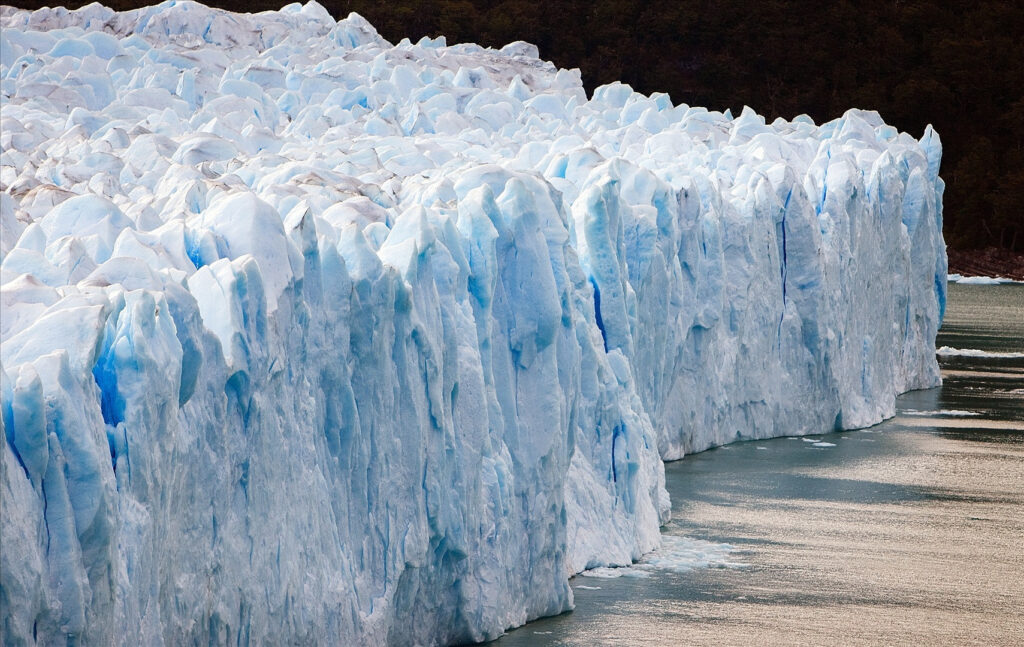Climate Change Weekly #38
New satellite data show glacial ice is melting more slowly than previously thought. Scientists at the University of Colorado examined data from Gravity Recovery and Climate Experiment satellites and report 30 percent less glacial ice is melting per year than scientists previously believed.
The Gravity Recovery and Climate Experiment, known by its acronym GRACE, measures gravity in distinct regions around the Earth. The gravity measurements allow scientists to calculate mass, which in turn tells scientists how much snow and ice exist in certain places. By comparing gravity measurements on a year-to-year basis, scientists can measure changes in snow and ice mass.
Prior to utilizing GRACE data, scientists collected snow and ice data at various locations and then extrapolated the data on a worldwide basis. As it turns out, the data collection points had been skewed to show more melting than was actually occurring.
The substantial overestimation of glacial ice loss in previous reports serves as a reminder that surface temperature measurements reported from various locations and then extrapolated on a worldwide basis conflict with uniform global temperature readings measured by instruments on NASA satellites. Much like the GRACE satellite data show scientists have been overestimating global ice loss, NASA satellite data show prominent alarmists James Hansen, Phil Jones, and other overseers of surface temperature datasets are overestimating recent global warming.
Despite the good news that glaciers are melting more slowly than previously thought, the University of Colorado press release is interestingly titled, “CU-Boulder study shows global glaciers, ice caps shedding billions of tons of mass annually” and the press release itself does not mention that the satellite-measured glacial ice loss is much less than previously thought.
SOURCES: University of Colorado and U.S. News and World Report
IN THIS ISSUE
Himalayan glaciers not receding … Cancel the jellyfish scare … Relative humidity in long-term decline … The Sun’s influence on climate examined … Santorum capitalizes on global warming skepticism
HIMALAYAN GLACIERS NOT RECEDING
Himalayan glaciers have held steady during the past decade, with ice loss “not significantly different from zero,” scientists report in the journal Nature. The glacial measurements, performed by satellite instruments, refute claims by Al Gore and other global warming alarmists that Himalayan glaciers are rapidly melting.
SOURCES: Nature and The Guardian
CANCEL THE JELLYFISH SCARE
Widespread assertions that global warming is causing an alarming increase in global jellyfish populations have been debunked by a new peer-reviewed study. Australian scientists report in BioScience there is no evidence that jellyfish populations are rising. Assertions to the contrary were “prompted by increased media speculation” and “misreporting of qualified data.”
SOURCE: ScienceAlert
RELATIVE HUMIDITY IN LONG-TERM DECLINE
Relative humidity in North America has been declining at a rate of 0.5 percent per decade since the 1940s, according to a newly published study in the peer-reviewed Journal of Climate. The findings undercut a central assumption of alarmist computer models, that global atmospheric water vapor will increase sufficiently to keep relative humidity constant while global temperatures rise due to carbon dioxide emissions. Water vapor is a more powerful greenhouse gas than carbon dioxide. Declining relative humidity in the real world refutes the assertion that rising atmospheric water vapor will provide a strong positive feedback mechanism to minor increases in global temperature directly caused by increasing atmospheric carbon dioxide concentrations.
SOURCE: Journal of Climate and The Hockey Schtick
THE SUN’S INFLUENCE ON CLIMATE EXAMINED
What are the arguments for and against the Sun playing a significant role in recent global temperature changes? World Climate Report has published an informative and objective summary of both sides of the argument.
SOURCE: World Climate Report
SANTORUM CAPITALIZES ON GLOBAL WARMING SKEPTICISM
Republican presidential hopeful Rick Santorum scored a surprising and impressive sweep of primary and caucus contests in Colorado, Minnesota, and Missouri this week. Santorum’s surge occurred as he emphasized his longstanding skepticism of an asserted global warming crisis and his consistent opposition to carbon dioxide restrictions.
SOURCE: Forbes.com





